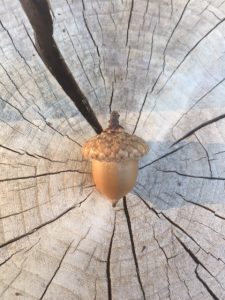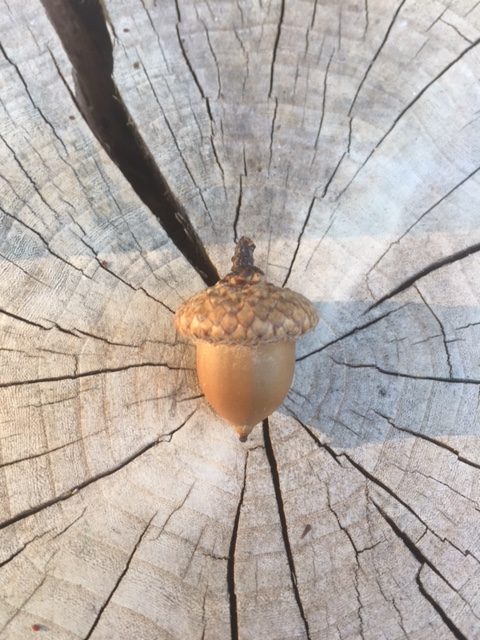
I confess.
I failed at my goal. In my last blog, I discussed how I had started a new habit of writing for 15 minutes every day. I did it faithfully for about four weeks and then I missed a day, then a second day. I felt miserable and reminded myself to restart but it didn’t happen. Another month went by and I did not write once. A failure. And it seemed like such a good idea!
I have long admired those people who tackle a huge project by taking small steps every day. It seems like such a sensible method to complete a big project – whether it is renovating a room, weeding a garden or writing a novel. But I fail at this method every time I try. Instead, I lurch from binge tackling of a project to long periods of stagnation until I pop into another binge round.
True Story: My brother-in-law installed an oak flooring throughout his home by adding 2-3 new planks a day with a hammer and nails. He used scrap pieces of wood from savaged pallets. After one year, he and my sister had a beautiful oak flooring for the cost of about $50 for the nails and varnish. How I wish I could emulate this ability to pursue a project by small daily steps!
I told myself to get back into a daily pattern but I seemed to lack motivation. Or I was lazy. Maybe because it’s summer time, and if there is a time for laziness, surely it must be summer. I decided to research why my attempt to change my habit failed. After all, I did do it for over 21 days, surely that should have been enough to start a good new habit! I recall reading somewhere that it is only suppose to take about 21 days to form a new habit. How did I fail then?
Turns out that my attempt to start this good new habit was doomed to failure. Not because it was impossible but because I missed doing a few key steps:
1. I did not plan out a clear “trigger” event to start the new behaviour.
2 . Even though 15 minutes seems like a short time, it was way too large. I needed to make it tiny.
3. I did not consciously reward my good new behaviour when I achieved it.
4. Because this is a “harder” activity, it was going to take a lot longer than 21 days to form an ongoing habit. Likely, it would take closer to eight months to develop.
In my google research, I read a lot of about creating a “trigger” or “reminder” event to prompt any new good habit. I like this quote from BJ Flogg, a Stanford professor on behaviour: “Plant a tiny seed in the right spot and it will grow without coaxing.”
BJ Flogg in his TED talk, discusses his “tiny habits” as a method to automatize new good habits. In his theory, you start with a tiny new habit (he uses the example of flossing one tooth or doing 2 pushups). You find a “trigger” event to prompt the good behaviour. The trigger event is something you already do every day without fail, like brushing your teeth, making breakfast, going to the bathroom. Then you tell yourself: After I brush my teeth, I will do my tiny new habit (like flossing). To help find a trigger event, make a list of all the things you automatically do every day. Then pick one and tell yourself that you will do your new habit after that event. This takes away the need to set alarms or scheduling it formally into your calendar.
You also have to make it tiny. Really, really tiny. Like acorn seed tiny.
This is a challenge for me as I tend to think big.

I have often been accused of living in a “construction utopia” when it comes to project planning. If the new habit is too big or takes more skill, you likely won’t do it every single day. That’s because doing something big takes a lot more motivation every day and so we will often fail when motivation is low – as it will inevitably happen. You might wonder what is the point of only flossing one tooth or writing for only 2 minutes. The key is not to get hung up on the end result but on the process; this is about forming a new habit. Flossing one tooth eventually leads to flossing every tooth, every day. Flogg started with 2 pushups and over a year it developed into doing 52 pushups every day.
Also important is the reward. We forget to give ourselves the cookie (although my research says it doesn’t have to be a real cookie, but I think why not?) When you do the new tiny thing, you celebrate your success immediately: happy dance, telling yourself that you are awesome, a high five with your dog’s paw. I recommend watching Flog’s talk if you want to think of creating a good new habit, whether it be eating better, getting exercise or writing every day. James Clear also has good articles on this method which he calls the 3Rs: Reminder (Trigger or cue), Routine (the new habit you want to take), and Reward.
A researcher (Phillippa Lally) found that it takes an average of 66 days to form a new habit and with some people taking up to 8 months. I am guessing that the “harder” the new habit, the longer it will take to form. As an easier habit is “flossing one tooth” (because we all know how to do it and it takes almost zero effort), writing for 15 minutes would be “much harder” as it takes effort and fifteen minutes of time. Far from the conventional myth of 21 to 30 days to form a new habit, it is more realistic that it takes anywhere from 2 to 8 months.
This means that I have to be more realistic in my goal.

So I have changed my plan.
My new goal is as follows: Every day after I eat breakfast, I will write for 2 minutes. I will celebrate every day I achieve this.
I started this on Sunday August 5. So far, I have stuck to my new plan. What new writing habit would you like to develop? What will be your trigger event?
Take this challenge with me and start to write every day.

I’m following you! I was thinking of your last blog as I haven’t managed 20 minutes a day, either. I make my trigger, coffee, which gets me my 3 morning pages written, but not on to the novel. Hmmm, I’ll think about this.
I work on edits on my novel in my morning routine. I keep track of where I left off from the previous day and slowly working my way through my draft.